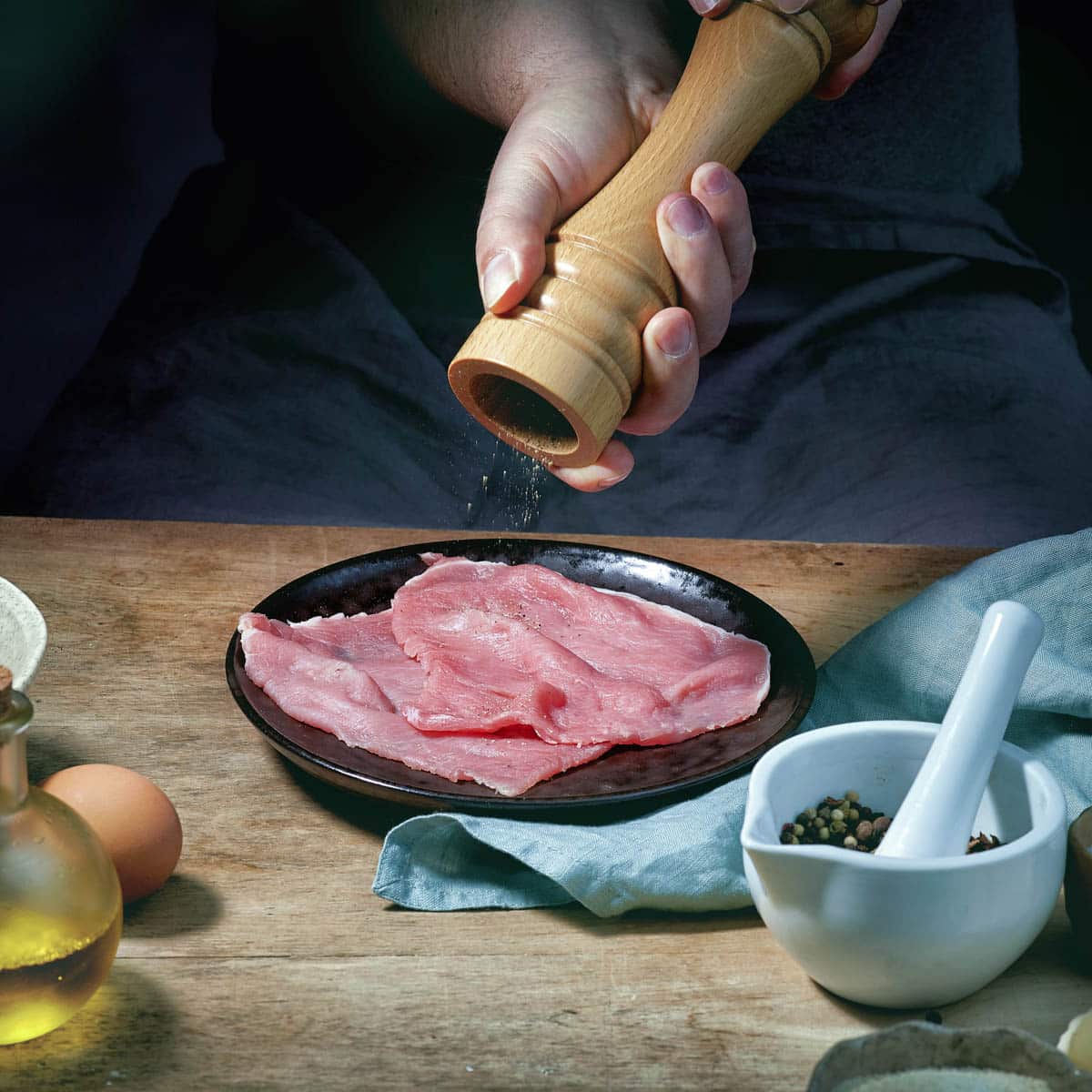How To Properly Season Food
Seasoning is a fundamental aspect of cooking that involves adding salt, herbs, spices, and other flavor enhancers to your dishes.
Knowing how to properly season food can take your culinary creations to the next level, elevating the flavor profile and making each bite more enjoyable.
How to properly season food
Properly seasoning food involves adding salt, herbs, spices, and other flavor enhancers to enhance the natural flavors of ingredients. Use salt in moderation, add delicate herbs towards the end of cooking, and experiment with different combinations. Taste your dishes as you go to adjust seasoning and achieve the perfect flavor.

Seasoning isn’t just about making your food taste better. It also affects the overall balance of flavors in your dishes.
Salt, for instance, helps to bring out the natural flavors in ingredients and helps to balance out bitter or sour flavors.
Herbs and spices can add complexity to your dishes and enhance the aromas and flavors of different ingredients.
Furthermore, proper seasoning can also impact the texture of your food. Salt can help to break down tough fibers in meats, making them more tender and juicy.
It can also play a role in the browning process, helping to create a crust on meats or vegetables for added texture and flavor. Following recipes is key to good-tasting meals. Learn how to read a recipe for better-tasting dishes.
How much salt to use
Salt is perhaps the most commonly used seasoning in cooking and for good reason. Not only does it enhance the natural flavors of food, but it also has a preservative effect that helps to extend the shelf life of certain ingredients.
However, it’s important to use salt in moderation. Too little salt can result in bland and under-seasoned dishes, while too much salt can make your food unpalatable and even unhealthy.
So, how much salt should you use? As a general rule, aim for around 1/4 to 1/2 teaspoon of salt per serving of food.
This can vary depending on the dish you’re making and your personal preferences, but it’s a good starting point.
It’s also important to note that different types of salt have different levels of salinity.
For example, kosher salt has larger grains and a less intense flavor than table salt, which means you may need to use more of it to achieve the same level of seasoning.
Sea salt can also have varying levels of salinity depending on where it was harvested.
To avoid over-salting your food, it’s best to add salt in stages throughout the cooking process, tasting as you go. You can always add more salt, but you can’t take it away once it’s been added.
In some cases, you may want to use other seasonings instead of or in addition to salt.
For example, acids like vinegar or lemon juice can add brightness and balance to dishes, while umami-rich ingredients like soy sauce or miso can add depth and complexity.
I have a great online cooking class for beginners that will teach you everything you need to know about building flavor into every dish you make.
Using herbs and spices
Herbs and spices are another essential component of seasoning. Not only do they add flavor, but they can also contribute to the visual appeal of your dishes, adding pops of color and texture.
When it comes to using herbs and spices, there are a few key things to keep in mind:
- Fresh is best: Whenever possible, use fresh herbs instead of dried ones. Fresh herbs have a brighter flavor and aroma, and can really make a dish sing. If you must use dried herbs, make sure they’re relatively fresh and haven’t been sitting in your pantry for years.
- Don’t be afraid to mix and match: Experimenting with different herb and spice combinations can be a fun way to add variety to your cooking. For example, you might try using thyme and rosemary together in a roasted chicken dish, or cinnamon and nutmeg in a pumpkin pie.
- Consider the cooking time: Some herbs and spices can withstand long cooking times, while others are more delicate and should be added toward the end of the cooking process. For example, robust herbs like thyme and rosemary can hold up to long simmers, while delicate herbs like basil and cilantro should be added just before serving.
- Use sparingly: While herbs and spices can add wonderful flavor to your dishes, it’s important not to overdo it. A little goes a long way, and it’s better to start with a small amount and add more as needed.
Some common herbs and spices you might use in your cooking include:
- Basil: A bright, fresh herb that’s great in tomato-based dishes and salads.
- Cumin: A warm, earthy spice that’s commonly used in Mexican and Middle Eastern cuisine.
- Paprika: A sweet, smoky spice that’s often used in Hungarian dishes and on grilled meats.
- Rosemary: A robust herb that’s great in roasted meats and vegetables.
- Thyme: A versatile herb that pairs well with chicken, fish, and vegetables.
- Garlic: A pungent, aromatic herb that’s used in many savory dishes.
You can also add a lot of flavor to your dishes with things like sauteed mushrooms and onions, check out how to get them nice and brown.
When and how to add seasonings
Knowing when and how to add seasonings to your dishes is just as important as choosing the right ones. Here are some tips to keep in mind:
- Start with the basics: Salt and pepper are the foundation of most savory dishes, so start by seasoning your ingredients with these two spices. As mentioned earlier, add salt in stages throughout the cooking process and taste as you go.
- Consider the cooking method: Different cooking methods can affect how seasonings behave in your dishes. For example, sautéing onions and garlic in oil before adding other ingredients can help to release their flavors and aromas, while roasting vegetables with a sprinkle of salt and herbs can enhance their natural sweetness.
- Add delicate seasonings towards the end: As a general rule, delicate herbs like basil and cilantro should be added towards the end of the cooking process, as they can lose their flavor and aroma when exposed to high heat for too long.
- Experiment with layering flavors: Layering different seasonings throughout the cooking process can help to build complexity and depth of flavor. For example, you might start by sautéing onions and garlic in oil, then adding cumin and paprika for a Middle Eastern-inspired dish.
- Taste as you go: As mentioned earlier, tasting your dishes as you cook is essential to ensuring that they’re properly seasoned. Don’t be afraid to adjust the seasonings as needed, adding more salt, herbs, or spices until you achieve the desired flavor.
If you have found that you have your dish is too salty or too spicy do not panic! Check out our post that will help you save your dish and how to correct over-seasoning!
Online Cooking for Beginners Course

Frequently asked questions for how to properly season food
Conclusion
In general, it’s best to add seasonings gradually and taste as you go, rather than dumping in a bunch of spices all at once. This will give you more control over the final flavor of your dish and help you to avoid over-seasoning.
By following these tips and practicing your seasoning skills, you can take your cooking to the next level and create dishes that are not only delicious but perfectly balanced in terms of flavor and texture.

Online Cooking for Beginners Course